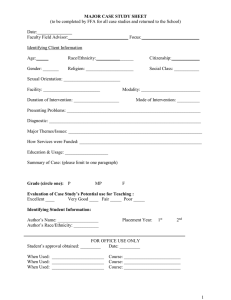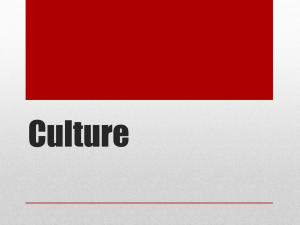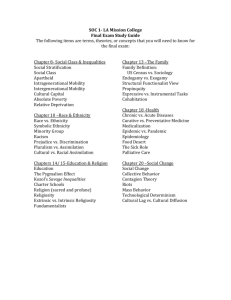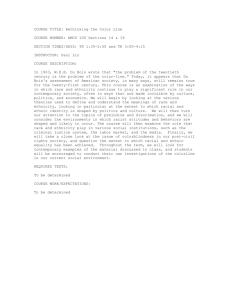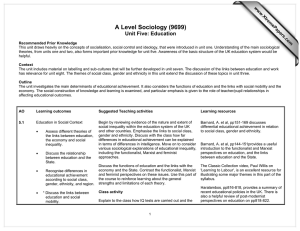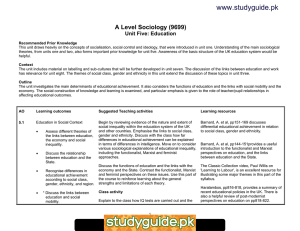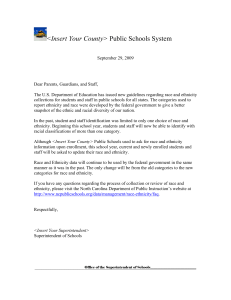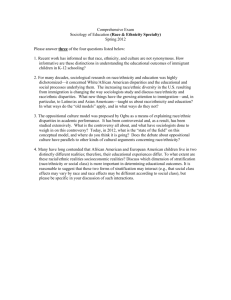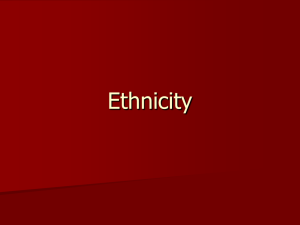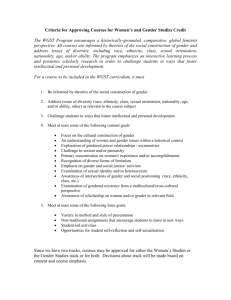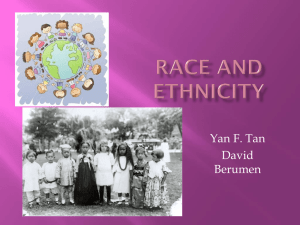AQAUnit_2_selfassessment
advertisement
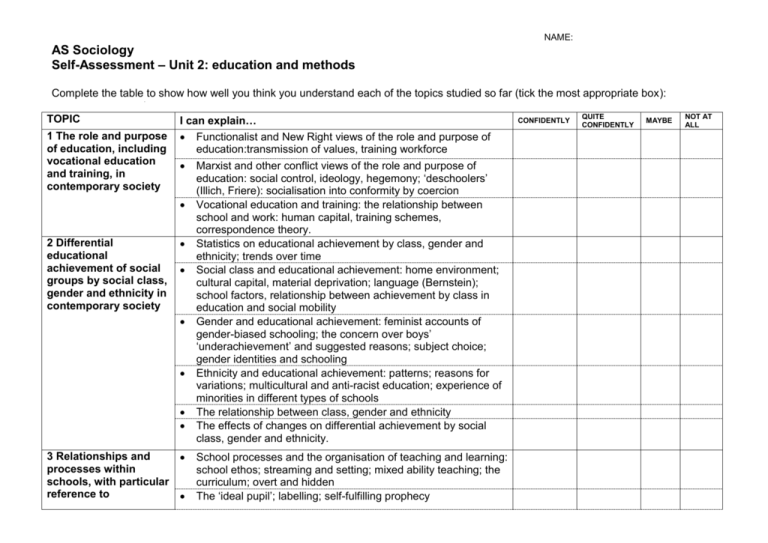
NAME: AS Sociology Self-Assessment – Unit 2: education and methods Complete the table to show how well you think you understand each of the topics studied so far (tick the most appropriate box): TOPIC 1 The role and purpose of education, including vocational education and training, in contemporary society I can explain… Functionalist and New Right views of the role and purpose of education:transmission of values, training workforce 2 Differential educational achievement of social groups by social class, gender and ethnicity in contemporary society 3 Relationships and processes within schools, with particular reference to Marxist and other conflict views of the role and purpose of education: social control, ideology, hegemony; ‘deschoolers’ (Illich, Friere): socialisation into conformity by coercion Vocational education and training: the relationship between school and work: human capital, training schemes, correspondence theory. Statistics on educational achievement by class, gender and ethnicity; trends over time Social class and educational achievement: home environment; cultural capital, material deprivation; language (Bernstein); school factors, relationship between achievement by class in education and social mobility Gender and educational achievement: feminist accounts of gender-biased schooling; the concern over boys’ ‘underachievement’ and suggested reasons; subject choice; gender identities and schooling Ethnicity and educational achievement: patterns; reasons for variations; multicultural and anti-racist education; experience of minorities in different types of schools The relationship between class, gender and ethnicity The effects of changes on differential achievement by social class, gender and ethnicity. School processes and the organisation of teaching and learning: school ethos; streaming and setting; mixed ability teaching; the curriculum; overt and hidden The ‘ideal pupil’; labelling; self-fulfilling prophecy CONFIDENTLY QUITE CONFIDENTLY MAYBE NOT AT ALL NAME: teacher/pupil relationships, pupil subcultures, the hidden curriculum, and the organisation of teaching and learning 4 The significance of educational policies, including selection, comprehensivisation and marketisation, for an understanding of the structure, role, impact and experience of education School subcultures (eg as described by Willis, Mac an Ghaill) related to class, gender and ethnicity Teachers and the teaching hierarchy; teaching styles The curriculum, including student choice. Independent schools Selection; the tripartite system: reasons for its introduction, forms of selection, entrance exams Comprehensivisation: reasons for its introduction, debates as to its success Marketisation: the 1988 reforms – competition and choice; new types of schools (CTCs, academies, specialist schools, growth of faith schools) Recent policies in relation to the curriculum, testing and exam reforms, league tables, selection, Special Educational Needs (SEN), etc Recent policies and trends in pre-school education and higher education 5 The application of sociological research methods to the study of education Quantitative and qualitative data in education; the dominance of statistics (eg exam results, league tables) Positivist and interpretivist approaches as applied to education Issues, strengths and limitations and examples of the application to the study of education of the main sources of data studied (see Sociological Methods section): o questionnaires o interviews (formal/structured; informal/unstructured) o participant and non-participant observation o experiments o use of documents, official statistics and other secondary data The theoretical, practical and ethical considerations influencing choice of topic, choice of method(s) and the conduct of research on education.
